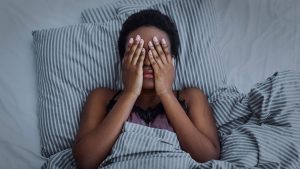
The study published in JAMA Psychiatry could help to effectively treat insomnia and prevent major depression disorder (MDD) in older adults. It is estimated that more than 10% of seniors will experience a major depression later in life at any given year.
This late-life depression can increase the risk of health conditions such as heart disease and high blood pressure, cognitive decline, and, particularly in men, suicide. Unfortunately, despite its prevalence in seniors, depression often goes undiagnosed and untreated.
A Recommended Treatment
Currently, CBT-I is a recommended first-line treatment for people with insomnia. This type of therapy centers around working with a therapist to help identify and change thinking patterns, emotional responses, and behaviors in those who suffer from lack of sleep.
Prior studies showed that CBT-1 could treat insomnia and depressive symptoms, but it was not known whether targeting insomnia would prevent depression in older adults. For this study, researchers looked at 291 adults who were 60 years and older with insomnia but had not experienced any depression for 12 months or longer.
Over 36 months of follow-up, participants completed monthly questionnaires which asked about symptoms of depression from insomnia. All participants were also diagnostically interviewed every six months to determine whether an episode of clinical depression had occurred.
The study found that depression occurred in 25.9% of the seniors in the group without cognitive behavioral therapy, and only in 12.2% of the group that received the treatment. These findings suggest that treatment with CBT-I can significantly help prevent major depressive disorder in older adults with insomnia.




